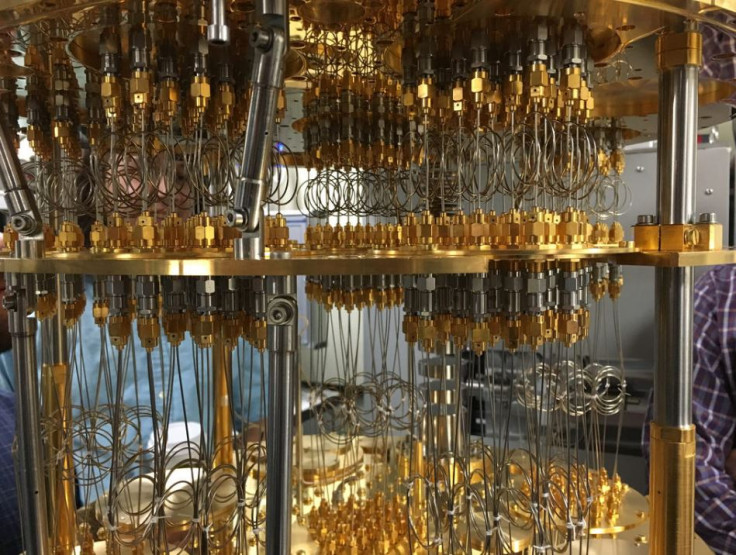IBM surges ahead of Google in quantum computing

IBM has developed a quantum processor composed of five qubits or quantum bits. The company is now allowing users to access its quantum computing platform called IBM Quantum Experience through cloud to run algorithms and experiments on the processor.
The quantum processor is currently housed at IBM's T J Watson Research Centre in New York. Engineers at IBM have developed a dynamic user interface on the IBM cloud platform that allows users to connect to the quantum hardware through cloud.
Qubits
The chip used in the quantum computer is made up of devices called qubits representing digital data that uses quantum effects. Quantum computing works differently from the currently available computers, which use bits to process information, where each bit represents either a one or a zero. In quantum computers, the qubit represents a one, a zero or both together. This, along with the quantum effect enables a quantum computer to perform calculations much faster than normal computers.
The qubits are made with superconducting metals on a silicon chip. A universal quantum computer would pack hundreds of thousands of millions of qubits. The chip announced by IBM uses five qubits. Google's lead researcher has made a chip that has nine qubits.
IBM further plans to add more qubits and a different processor to the IBM Quantum Experience in future allowing the public to expand their experiments and discover new apps for the technology.
A quantum computer can perform any task exponentially faster than traditional computers for multiple important applications including science and business. This development in the computing field is expected to lead to the discovery of new pharmaceutical drugs, besides unveiling new facets of artificial intelligence. It is also expected to develop new material science to transform industries and even help search large volumes of data.

"Quantum computers are very different from today's computers, not only in what they look like and are made of, but more importantly in what they can do. Quantum computing is becoming a reality and it will extend computation far beyond what is imaginable with today's computers," said Arvind Krishna, senior vice president and director, IBM Research.
"This moment represents the birth of quantum cloud computing. By giving hands-on access to IBM's experimental quantum systems, the IBM Quantum Experience will make it easier for researchers and the scientific community to accelerate innovations in the quantum field, and help discover new applications for this technology," added Arvind.
Race in quantum computing
Besides IBM, other companies including Google and Microsoft are trying to develop quantum computers. Speaking to MIT technology review, David Corey, a researcher at the Institute for Quantum Computing at the University of Waterloo, Canada said not many research groups can build chips like IBM; besides they are not available to others except select collaborators.
IBM's latest chip would put the company ahead of Google in the race for the universal quantum computer. Google has been working in collaboration with Nasa on D-Wave X2 quantum computer, which is 100 million times faster than the conventional computer chip. The computer can solve certain algorithms in seconds instead of years.
© Copyright IBTimes 2025. All rights reserved.





















